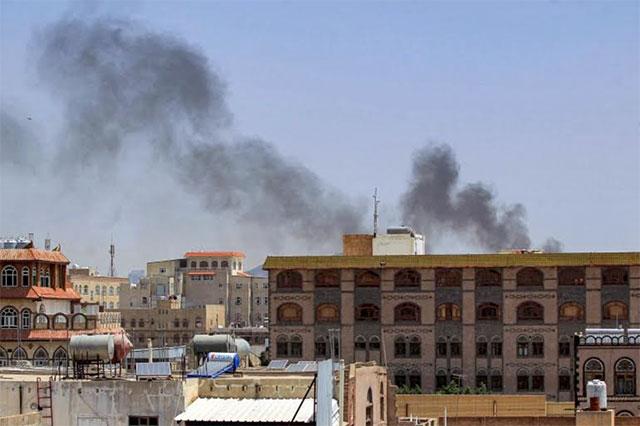- International News
- Friday-2021-06-11 | 11:54 am

Nayrouz News Agency :
The Saudi-led coalition fighting Iran-linked Houthi rebels in Yemen said on Thursday it has stopped carrying out attacks there in order to pave the way for a peaceful settlement.
The statement comes amid growing diplomatic efforts for a ceasefire agreement after more than six years of devastating conflict.
It also followed reports that the coalition had struck a Houthi armoured division near the rebel-held capital Sanaa on Thursday.
AFP correspondents in the city heard loud explosions and saw smoke rising in the sky.
But coalition spokesman Turki Al Maliki told Saudi state television that "no military operation has been carried out in the vicinity of Sanaa or any other Yemeni cities in the past period".
The de-escalation is aimed at "preparing the political ground for a peace process in Yemen", he said.
His comments came amid a months-long Houthi offensive to seize Marib and its surrounding oil fields -- the last significant pocket of government-held territory in the north.
Marib's loss to the Houthis would be a major blow for Yemen's government, which is backed by the Saudi-led coalition, and could unleash a humanitarian disaster.
Earlier this month, Omani officials visited in Sanaa to try to convince the rebels to accept a ceasefire, according to rebel sources.
Oman's Foreign Minister Badr Albusaidi arrived in the Saudi capital Riyadh for talks on Wednesday.
In another sign of progress in peace efforts, Houthi officials have begun repairing roads near Sanaa airport, local sources told AFP, indicating that the facility could soon be reopened.
The Saudi-led coalition has controlled Yemen's airspace since it launched a military campaign in 2015 to prop up the country's internationally recognised government.
The Houthis have repeatedly demanded the re-opening of Sanaa airport before any ceasefire.
The effort to secure peace in Yemen comes after Saudi Arabia and regional rival Iran restarted talks in April, with their first high-level meeting since Riyadh cut diplomatic ties with Tehran in 2016.
The UN says Yemen is suffering the world's worst humanitarian crisis as its years-long war rumbles on, with tens of thousands killed, millions displaced and two-thirds of its 30-million population dependent on aid.













